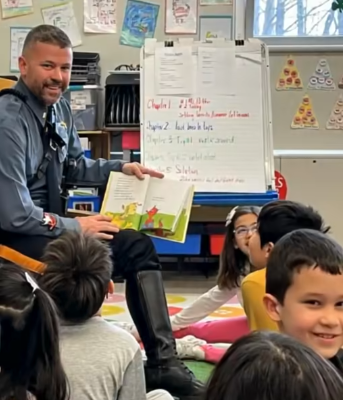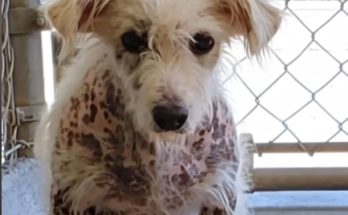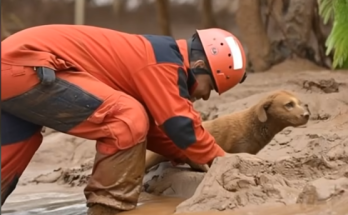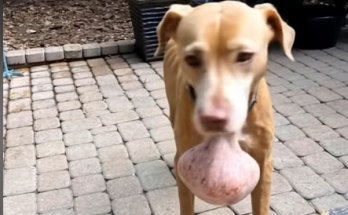It started with a routine patrol.
I was driving past the elementary school during recess—just doing my rounds—when I saw a group of kids near the fence. One of them spotted my cruiser, pointed, and said something that made the others freeze.
They scattered.
Not laughing. Not playing. Just… scared.
I didn’t even get out of the car.
That night, I couldn’t stop thinking about it. I wasn’t there to scare anyone—I was there to keep them safe. But for some of those kids, a badge and a belt full of gear didn’t feel like safety. It felt like a warning.
So the next week, I showed up without the patrol car. Still in uniform, but holding a copy of Green Eggs and Ham.
I knocked on the principal’s door and asked if I could read to a class. She blinked at me like I was joking. But then she smiled and said, “Pick a grade.”
Now I come back every other Friday. We sit in a circle. I read books that make them laugh and ask questions. Some of the same kids who used to run now save me a spot on the rug.
But last week, one girl stayed behind after the others left.
She looked at my holster, then at my face, and asked, “Are you the one who helped my brother last year?”
I started to say no—I hadn’t been assigned to anything like that.
But then she said his name.
And something about the way she said it made me pause.
Because that was the same name from a call I’d responded to… the one I still think about more than I care to admit.
His name was Mateo.
He was fifteen. I remember it was a rainy afternoon, sometime in late November. A neighbor had called in, said there was yelling, a crash, and then silence. We responded, expecting the usual noise complaint or maybe a domestic.
But when we got there, the front door was ajar. Inside, it was dead quiet. That eerie kind of quiet that makes your skin crawl.
We called out.
No answer.
I was the one who found him.
Mateo had locked himself in the laundry room, shaking and crying with a busted lip and a broken phone in his hands. His stepdad had hit him. Hard. Then smashed the phone when Mateo tried to call for help.
The guy was still there—passed out on the couch, smelling like cheap beer and rage.
We took Mateo in that night. I stayed with him until social services arrived. He never said much, just nodded or shook his head. But when they took him away, he gave me this little nod… almost like a thank you, though the words never came.
Now, here was his little sister. Sitting cross-legged on the story rug, staring at me with wide brown eyes.
“Is he okay?” I asked gently.
She nodded. “He’s with our aunt now. He’s better. He sends me drawings sometimes. But he doesn’t like phones anymore.”
That part made sense.
She hesitated, then pulled something out of her backpack. A folded paper. Crinkled around the edges. She handed it to me.
It was a drawing of me.
In uniform.
Sitting on the floor with kids, holding a book.
I didn’t know what to say. My throat felt tight.
“He drew it from a picture I showed him,” she whispered. “He said if it was you… to tell you thank you. For not yelling. For sitting with him. For waiting.”
I blinked fast and folded the drawing back up, careful not to crease it more.
“Tell him…” I paused, trying to steady my voice. “Tell him I’m proud of him.”
That Friday changed something.
It reminded me why I joined in the first place. Not for the action, not for the authority, but to be the person who shows up when someone needs help—even if they don’t know how to ask.
A few weeks later, the school invited me to Career Day. They wanted me to speak in front of the whole fourth and fifth grades.
I panicked a little, to be honest. Public speaking isn’t really my thing. But I said yes.
I didn’t bring a slideshow or a flashy presentation. Just the same beat-up copy of Green Eggs and Ham and the drawing from Mateo.
I told them what I really do. Not just chase bad guys or give tickets—but sit with people when they’re scared. Talk to kids when they’re confused. Help find lost pets. Help carry groceries when someone’s injured. Listen.
At the end, I held up the drawing and said, “Sometimes, the most important thing we can do is just be there. Not to scare people. Not to bark orders. But to make someone feel safe, even if it’s just for five minutes.”
After that, something shifted again.
More kids started waving when I walked by. Some even came up and asked about my gear—“Is that heavy?” “Does your belt make your pants fall down?” “What’s the walkie-talkie for?” Normal kid questions.
And one morning, a small boy I’d never seen before marched up to me with his chin held high and asked, “Can you help me? I lost my lunchbox.”
So we looked. Together. Found it in the teacher’s lounge fridge for some reason. But the smile on his face made my entire week.
Still, not everyone was convinced.
One parent, a guy named Mr. Deluca, raised a fuss at a PTA meeting. Said it was inappropriate for law enforcement to be “mingling with children unsupervised.” That we were “normalizing authority figures in educational spaces.”
I won’t lie—that one stung.
I’d never overstepped. The teachers were always present. But I kept my head down and let the principal handle it.
Then, a month later, something unexpected happened.
I was reading The Gruffalo to the second graders when the fire alarm went off.
At first, I thought it was a drill. But then the teacher got a call on her radio—and her face changed. There was an actual fire in the cafeteria kitchen. Nothing huge, but enough to trigger real evacuation procedures.
Kids started to panic.
But because I was there, and because they knew me, they listened.
I led them out with their teacher, holding hands, cracking jokes to keep them calm. We made it to the field in under two minutes.
Later, the fire chief told me the quick exit prevented at least three kids from inhaling too much smoke. One had asthma. It could’ve been bad.
Mr. Deluca came up to me after that.
He didn’t say much. Just held out his hand and nodded.
That was enough.
Months passed. I kept showing up with books, kept reading on Fridays. But then one day, the principal pulled me aside.
She looked troubled.
“There’s a student,” she said. “Fifth grader. His name is Caleb. He’s been… quiet lately. Withdrawn. Something feels off.”
I offered to stop by his class.
When I did, I noticed it immediately.
He sat in the back, hoodie up, arms crossed. Wouldn’t look at me, wouldn’t laugh, even when I brought out Diary of a Wimpy Kid—which usually gets a chuckle or two.
After class, I lingered. He didn’t.
But the next week, I came back. This time, I sat next to him instead of standing.
He didn’t speak at first. Just kept looking at the floor.
But after a while, he whispered, “Do you ever get scared?”
That question caught me off guard.
“Yeah,” I said. “I do.”
He looked up.
“When?” he asked.
So I told him about the night I found Mateo. About the silence. About how I wasn’t sure what I’d find behind that laundry room door. How scared I was to open it.
“But I opened it anyway,” I said. “Because sometimes, being brave means doing something even when you’re scared.”
He nodded.
Then slowly, he opened up.
Turns out, Caleb’s older brother had started hanging with a bad crowd. Late nights, strange friends, loud arguments at home. Caleb felt powerless. And scared.
I connected his mom with a youth outreach officer I trusted. Things didn’t magically fix overnight—but the school counselor said Caleb started talking more. Smiling again.
The last Friday before summer break, I walked into the library for our usual story time.
The whole room was decorated.
Streamers, thank-you cards, drawings of me with wildly oversized ears and tiny books.
A giant banner said, “Thank you, Officer Eli!”
That was the first time I cried in uniform.
They gave me a basket full of snacks and drawings and even a T-shirt with all the kids’ names written in crayon.
But the best gift came at the very end.
That little girl—Mateo’s sister—ran up and hugged me tight. “He wants to meet you,” she said. “In person. He said he’s ready.”
So we met. At a park. No badge. No gear. Just me and him and a couple sodas.
He was taller now. Quieter. But when he smiled, I could still see that scared kid from the laundry room.
We talked for an hour.
Before he left, he said, “I wanna be like you someday. Someone who waits. Someone who listens.”
I’ve worn my badge for almost a decade. But that might’ve been the proudest moment of my life.
So yeah, maybe the uniform scared them at first.
But the book?
The book opened doors the badge couldn’t.
And now, every other Friday, I walk through those school doors not as a cop.
But as someone they trust.
Someone who reads funny voices and holds their lunchboxes and listens when their worlds feel too big.
That’s what I signed up for.
To help.
To protect.
And sometimes, just to read Green Eggs and Ham for the fiftieth time—because that’s what they need most.
If this story made you smile, please give it a like—and share it with someone who might need a reminder that kindness wears many uniforms.



